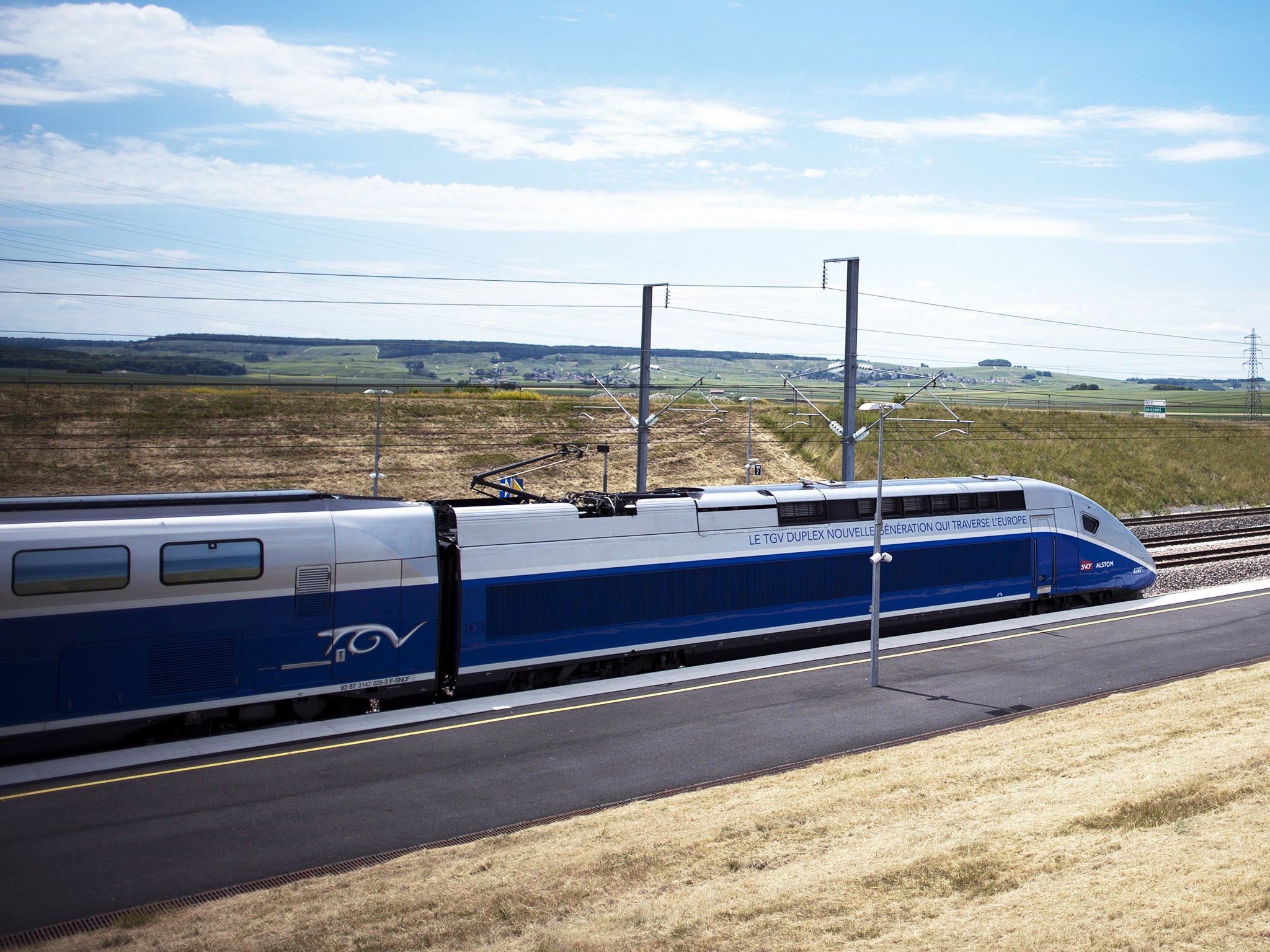France rejects TGV extension plans - which could be bad news for Britain's proposed HS2 high-speed rail network
Public inquiry concludes that the new lines were too costly and would benefit only rich people and large cities - arguments similar to those used by opponents of HS2 in the UK

France’s love affair with high-speed railways seems to be cooling almost as rapidly as the trains can travel.
A public inquiry has rejected plans for two new TGV lines in south-west France, using arguments similar to those made by opponents of the proposed HS2 high-speed rail network in Britain.
In the latest of a series of danger signals for the rail revolution which France began three decades ago, the inquiry team concluded that the new lines were too costly and would benefit only rich people and large cities.
The report is advisory. The government could, in theory, push ahead with its plans to spend €8bn on 225 miles of new lines between Bordeaux, Toulouse and the Spanish border by 2030.
The negative findings must now go to the state watchdog, the Council of State, and then to the government for a final decision.
Another state watchdog, the Court of Auditors, published an excoriating report on the economics of high-speed railway travel in December. Even if national and local governments want to go ahead, it may now prove difficult to raise the private investment that the projects need.
The arguments will be closely watched by opponents of the planned line to the Midlands and the North of England. The French inquiry report complained – as critics of HS2 did – that the money could be better spent on improving the existing rail network.
Defenders of HS2 can, however, point to the many successes of the Train à Grande Vitesse (TGV) in France and beyond in the last three decades. Over two billion passengers have been carried by TGV in France since September 1981, without a single death or serious injury.
Most of the present controversy surrounds the third generation of high-speed lines which will – in theory – double France’s 2,000km network by the middle of the century.
France is already building four new extensions to existing high-speed routes. The longest of these, putting Bordeaux just over two hours from Paris instead of three, will open in 2017.
The government, local authorities in the south west and the state railway system, the SNCF, want this line to continue eastwards to Toulouse with a fork southwards to Dax on the Spanish border by 2030. In theory, this would make it possible to travel by 200mph train all the way from London to Madrid.
The new lines have been strongly opposed by some local politicians, by environmental campaigners and by Sauternes wine producers (who complained that the fast trains would make their sweet grapes sour).
The report of the official public inquiry rejected the complaints of the Sauternes producers as far-fetched, but concluded that there was “no compelling need for high-speed lines in the south-west region”.
The shorter journey times did not justify the financial cost and damage to the environment, the report said. Most of the benefits of the new lines would go to richer people in big cities, the report concluded. It also said that the rising cost of high-speed rail travel in France meant extensions were of little benefit to ordinary people.
Join our commenting forum
Join thought-provoking conversations, follow other Independent readers and see their replies
Comments
Bookmark popover
Removed from bookmarks